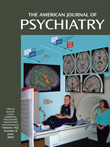To the Editor: We appreciate Dr. Kerber’s thoughtful comments regarding our article on older adult gambling. We share Dr. Kerber’s concern that findings should “be reported cautiously and comprehensively” and welcome the opportunity to clarify aspects of our study.
As Dr. Kerber notes, we reported that recreational gambling “is not associated with negative measures of health and well-being.” Dr. Kerber asserts that this statement is “misleading,” citing findings in Table 2. She states that higher rates of past-year alcohol use and abuse, lifetime depression, lifetime incarceration, and lifetime bankruptcy are seen in the comparison between older adult gamblers and nongamblers. We disagree with her interpretation. Although the absolute proportions of older adult gamblers acknowledging these measures are higher than the corresponding proportions of older adult nongamblers acknowledging them, the between-group differences are not statistically different except for the comparison involving past-year alcohol use. In fact, for past-year alcohol abuse, the adjusted odds ratio is less than 1. Because alcohol consumption can have beneficial effects (e.g., cardioprotection), the finding of an elevated odds ratio between older adult gamblers and nongamblers for past-year alcohol use does not necessarily represent an association between recreational gambling and a negative health measure.
A limitation of the study that we cited in the original report involves the relatively small sample of older adults compared to the larger sample of younger adults. As such, there is less statistical power in the study to detect between-group differences in comparisons of older adult gamblers and nongamblers relative to comparisons of younger adult gamblers and nongamblers. This feature might be particularly relevant to the measures of lifetime depression, incarceration, and bankruptcy in older adults in which odds ratios above 1 were observed, although in all cases, the differences were not statistically significant. As such, future studies of larger samples of older adults seem warranted to investigate the relationship between gambling and these measures in older adults. Moreover, because all three variables represented lifetime measures, additional investigation into the relationship between gambling and current functioning with respect to mood, finances, and legal problems seems important to determine the temporal relationship to the current health of older adults. As we state in the conclusion, longitudinal studies would be important in this regard.
We agree with Dr. Kerber that a more detailed assessment of health would be of significant value. In fact, we state in the article that “the use of specific objective measures of health in future studies would be helpful in clarifying the relationship between gambling and health” (p. 1678). The random-digit dialing survey of the Gambling Impact and Behavior Study frequently employed measures that were designed to yield important information while minimizing respondent burden. Given the early stages of gambling research, particularly in the area of older adult gambling and the conceptualization of gambling within a public health framework
(1), we believe that additional research will be important to replicate and extend the current findings as the field moves toward the development of health guidelines for gambling. Because the natural history of various levels of gambling is incompletely understood, particularly for older adults, we agree with Dr. Kerber’s apparent concern about older adult recreational gambling, given that the transition between recreational and problem/pathological gambling in older adults and the factors mediating this transition are not well understood
(2). Furthermore, older adult problem gamblers appear to report fewer problems than do younger adult problem gamblers
(3), raising the possibility that particularly active screening for problem gambling behaviors in older adults might be clinically important. In summary, we believe that older adult gambling warrants increased clinical attention, and more research is needed to understand the potential risks and benefits of various levels of gambling as they relate to older adult health.

